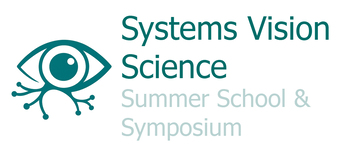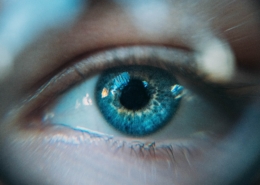The Virtual Systems Vision Science Summer School & Symposium, July 8 – 31, 2026
The 4th edition since 2023
What is systems vision science?
Systems vision science combines computational, behavioral, and neuroscience methods to discover functions and algorithms for vision in various brain regions and their implementations in neural circuits.
Target audience
This summer school should be helpful to experimental vision researchers for learning computational methods, vision theorists and modellers for closer links with experimental data, physicists, engineers, and computer vision researchers for learning about biological vision, and, more generally, vision scientists interested in topics and approaches in systems vision science.
Style and content
Unlike a typical summer school which combines multiple tutorials or pedagogical seminars, this summer school is like a graduate school course with a more coherently structured syllabus. The syllabus expands upon the content of a textbook “Understanding vision: theory, models, and data” published by Oxford University Press 2014. The course will be taught by a team of local and international lecturers. Click here for 2023, here for 2024, and here for 2025 edition of this SVS summer school.
The virtual summer school contains lectures, guided exercise, quiz, and discussion sessions. Discussion sessions will also encourage interactions by including discussions on, e.g., controversial research issues, historical retrospectives, differences/relationship between disciplines, and relationship between theories and data.
The summer school will end with a symposium on frontier topics in systems vision science, with talks by additional speakers and symposium participants. The summer school students will be invited to the symposium as participants.
Concept of the summer school
- A coherent graduate-course syllabus in a summer school format
- Data, models, and theory — what, how, and why
- Content and approaches presented by and discussed with world leading experts in vision science
- Supervised exercises help to practice the theoretical knowledge
- Social interactions and networking while you enjoy science
- A symposium on frontier topics to intensify and extend the knowledge gained during the classes
Aim and motivation
This summer school aims to promote a systems level approach of understanding how vision works by combining neural and behavioral data with theories and models. This is motivated by a recognition that fresh research progress increasingly requires this approach, and that both new ideas and new experimental technology can help to strengthen the tradition of scientific rigor.
Pre-requisites
Experience or knowledge in (A) computational methods, (B) visual psychophysics, and (C) vision neuroscience, is not required. However, experience in at least one of (A), (B), and (C), and a readiness to learn, is expected. Summer school admission will be based on interest/motivation and prior knowledge/experience of the applicants, and on how much the applicants could benefit from participation.


